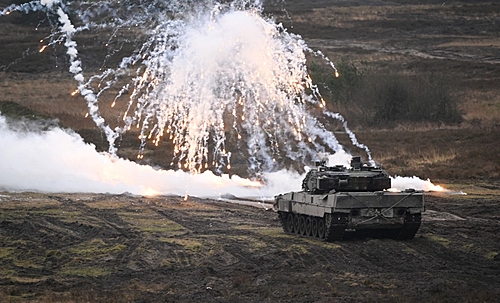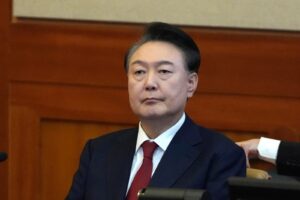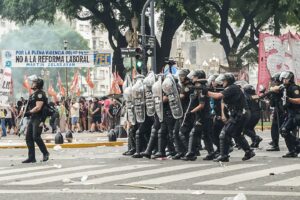
The 59th edition of the Munich Security Conference will be the stage, in the words of the organizers themselves, of an “incomparable platform for high-level debates”, but not everyone is invited. The event, which starts this Friday (17th) and runs until Sunday (19th), will not have any participants from Iran or Russia as the Russians’ war against Ukraine drags on for almost a year.
The event was not always like this. In 2007, Russian President Vladimir Putin used the stage to state that he found a unipolar world order “unacceptable” and also criticized the expansionism of the North Atlantic Treaty Organization (NATO). “The expansion of NATO has nothing to do with the modernization of the Alliance itself, nor with the guarantee of security in Europe. On the contrary, it represents a serious provocation that reduces the level of mutual trust”, highlighted the Russian president at the time.
At the 2023 edition of the Munich Security Conference, however, no Russians will be invited as a response to the invasion of Ukraine. The attendance list includes French President Emmanuel Macron, German Federal Chancellor Olaf Scholz, US Vice President Kamala Harris and former Chinese Foreign Minister and Politburo member Wang Yi.
In an interview with Brazil in fact, São Paulo State University (Unesp) professor Luís Fuccille points out that the Munich Security Conference was created in the context of the Cold War to align the countries of Western Europe, the US and Canada. The event undergoes a reformulation after the fall of the Berlin Wall, but “it continues to represent, up to the present day, the concerns, the perceptions that largely bother the West, I am speaking mainly the north, the central countries of the western north , and, above all, Europe”.
In a statement, the French government said Macron would attend the event to “ensure Russia’s defeat” in its war against Ukraine. The French posture is in line with the White House, which feeds its war industry with successive shipments of arms to Ukraine to face the Russian invasion. Germany, which at the beginning of the conflict avoided sending weapons to war, recently announced the sending of its Leopard-2 tanks.
File photo of the Munich Security Conference / Michaela Rehle / AFP
Fuccille points out that although it is undeniable that the war “begins with a violation of sovereignty” of Ukraine, there are problems on both sides and that the conflict is not “irrational”. Faced with the current situation, however, the researcher claims that Europe is following US interests in an unreflective way and is not seeking to build a “negotiated way out” of the conflict.
“War is not an end in itself, it has a certain objective. In war you always have to leave a door ajar for an exit to either side, for what I call an honorable exit”, says the professor at Unesp. “What has to be done is to call these actors to sit at the negotiating table and try to build a desirably honorable exit for both sides.”
China on the table
Another important issue at the event will be the participation of China. In an editorial, the Chinese state-run newspaper Global Times said that the US and NATO are seeking to transform the Munich Security Conference into an “internal meeting” of the western world and that Europe and China have a “broad convergence of interests” despite the US attempts to “sow discord”.
Close to Russia, China should also not make diplomatic advances for peace at the event, believes Fuccille, because the US will not accept mediation from Beijing — and also because the Chinese benefit from the discounted oil they buy from the Russians, who have difficulty to access the international market because of western sanctions. In addition, Chinese diplomacy also needs to manage its growing conflicts with the US.
“Beijing will not act as Moscow’s mouthpiece, but without a doubt, Beijing and Moscow have a very close alliance. Nor is it the limitless alliance announced in the recent past, obviously it has limits, China can in some ways make a difference. listening work in this context dominated by Western countries about what the West is thinking, especially about the conflict between Russia and Ukraine”, evaluates the Unesp professor.
Editing: Nicolau Soares
Source: www.brasildefato.com.br

